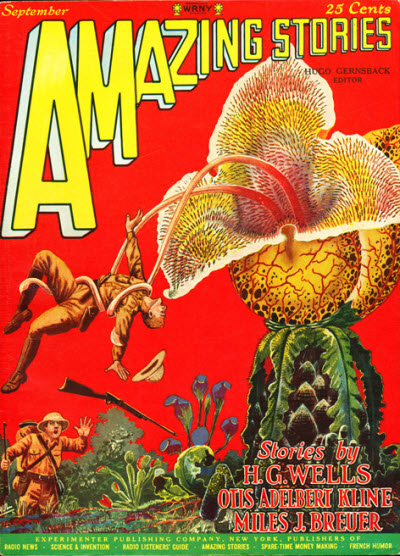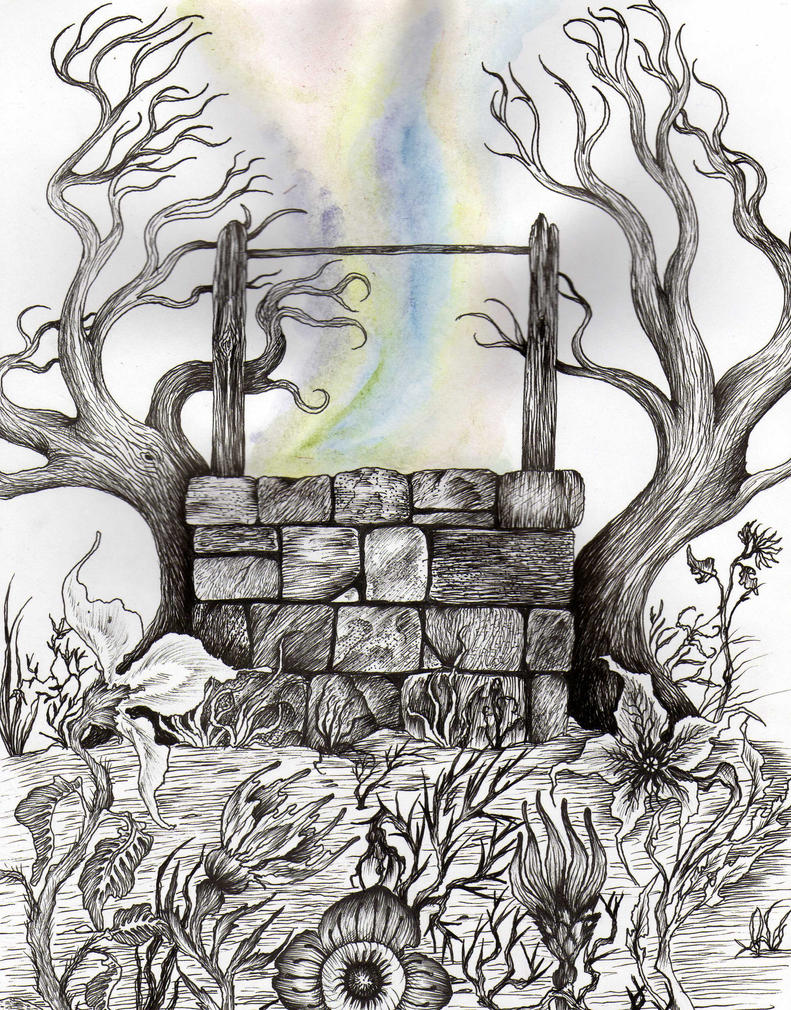 First appeared in Amazing Stories, reprinted by August Derleth, Mary Gnaedinger, Groff Conklin, Sam Moskowitz, Bryan A. Netherwood, Leslie A. Fiedler, Peter Haining, Martin H. Greenberg, Robert Weinberg, Stefan Dziemianowicz, Mike Baker, Garyn G. Roberts, Michael Kelahan, Guy Anthony De Marco, John Gregory Betancourt, Colin Azariah-Kribbs--a few of which were genre retrospectives. A movie (see trailer below) and radio dramas have sprouted from this tale.
First appeared in Amazing Stories, reprinted by August Derleth, Mary Gnaedinger, Groff Conklin, Sam Moskowitz, Bryan A. Netherwood, Leslie A. Fiedler, Peter Haining, Martin H. Greenberg, Robert Weinberg, Stefan Dziemianowicz, Mike Baker, Garyn G. Roberts, Michael Kelahan, Guy Anthony De Marco, John Gregory Betancourt, Colin Azariah-Kribbs--a few of which were genre retrospectives. A movie (see trailer below) and radio dramas have sprouted from this tale.This one of Lovecraft's more straightforward tales. A meteorite lands in a farmer's yard. Scientists are unable to analyze it. After a storm where lightning strikes the meteorite six times in an hour, it disappears... as does the samples the scientists took.
 The crops look exceedingly large and tasty, but they are laced with bitterness. The family moves the cows far from the home, so their milk isn't tainted. The grass and plants turn grey and brittle. The family gradually grows insane. Sons throw themselves into the well. When a family friend stops by, the family is gone, only scuttling creatures that decay remain. The property glows.
The crops look exceedingly large and tasty, but they are laced with bitterness. The family moves the cows far from the home, so their milk isn't tainted. The grass and plants turn grey and brittle. The family gradually grows insane. Sons throw themselves into the well. When a family friend stops by, the family is gone, only scuttling creatures that decay remain. The property glows. As a straight-forward piece, unlaced by cumbersome, fulsome, fearsome, and other over-complicated "Cyclopean" adjectives--so many adjectives that you forget what the sentence was about--this work has more energy than others.
As a straight-forward piece, unlaced by cumbersome, fulsome, fearsome, and other over-complicated "Cyclopean" adjectives--so many adjectives that you forget what the sentence was about--this work has more energy than others.It culminates not with the family, though, an ending that would satisfy other writers, but it would not fulfill Lovecraft's vision of the cosmos. Rather, others investigate the place and witness the above well vision to the right. Something escapes to the cosmos, and something yet stays behind. The witnesses should leave but cannot--just as Nahum warned.

As an ending that informs the rest of the work, it repeats the same, Lovecraftian notes over and over, reminding me why I cannot stomach more than a few Lovecraft tales at a time. For those tired of Hollywood triumph-over-tragedy type stories, Lovecraft must come as a non-relieving relief. The endings readers prefer could become a new psychological pessimist/optimist-spectrum indicator that psychologists could name after Lovecraft.


No comments:
Post a Comment